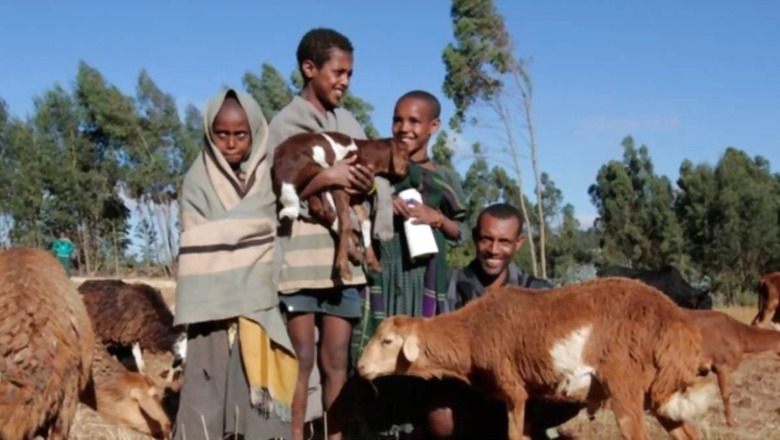
views
Festivals like Christmas and New Year are common celebrations observed with much pomp and enthusiasm globally. The traditions might be different in every country, but the date of the celebration remains the same. But are you aware of an East African country, whose New Year celebrations are quite different than the rest of the world? In Ethiopia, the natives mark the beginning of their New Year in September. And that’s not all, while the entire world has already rung in 2024 and looking forward to 2025, Ethiopia will be entering 2017 on their New Year.
According to the Ethiopian calendar, Ethiopians will officially step into the year 2017 on September 11, marking the beginning of the New Year. Ethiopia, the second most populous country in Africa, is seven years and eight months “behind” the world, still living in 2016. The ancient Coptic calendar is the Ethiopian calendar’s source, commonly called the Ge’ez calendar. There are thirteen months in total: 12 months of 30 days each and Pagumđ — an intercalary month with five or six days depending on whether it is a leap year.
According to a report by CNN, Pope Gregory XIII introduced the Gregorian, or “Western,” calendar in 1582. Since then, Ethiopians have observed that Jesus Christ was born seven or eight years later. Experts claim that the Ethiopian Orthodox Church chose to adhere to the older dates, while the Roman Church revised the calculations around 500 CE. Ethiopia has maintained its calendar even though a large part of the world has switched to the Gregorian calendar.
Since international organisations widely follow the Gregorian calendar, many Ethiopians are forced to keep track of both the Western and the traditional Ethiopian calendar, claims CNN. According to Ethiopian archaeologist Goitom W Tekle, when communicating with Ethiopians, particularly those who are headquartered in rural areas, some institutions have to constantly switch between the two calendars, taking into account the various dates and hours.
Another interesting aspect of Ethiopia is that Ethiopians employ a 12-hour clock system that spans from dawn to dusk, commencing at 1 am, in contrast to most other countries where the day begins at 12 am.




















Comments
0 comment